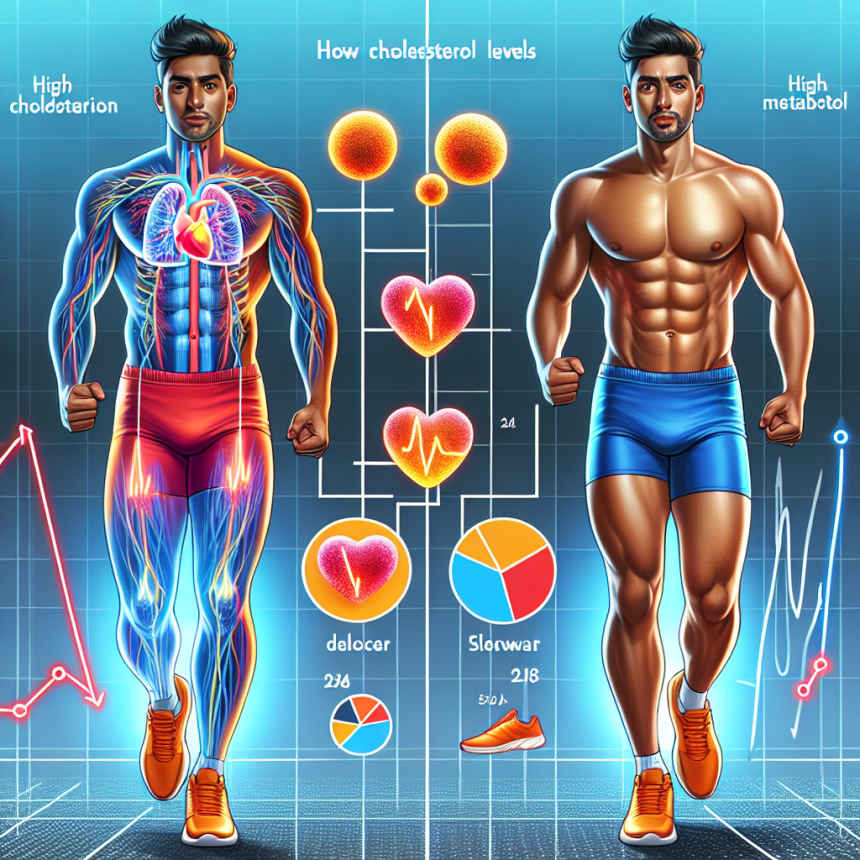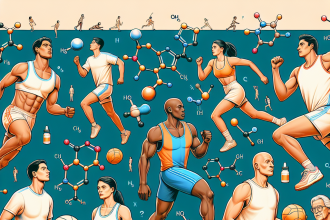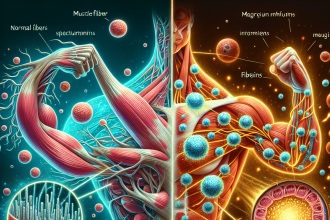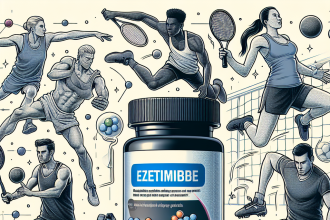-
Table of Contents
The Effects of Cholesterol Levels on Sports Metabolism
Cholesterol is a type of fat that is essential for the proper functioning of our bodies. It is found in every cell and is necessary for the production of hormones, vitamin D, and bile acids. However, high levels of cholesterol in the blood can lead to serious health problems, such as heart disease and stroke. In recent years, there has been a growing interest in the effects of cholesterol levels on sports metabolism. This article will explore the relationship between cholesterol and sports performance, as well as the potential impact of cholesterol-lowering medications on athletic performance.
The Role of Cholesterol in Sports Metabolism
In order to understand the effects of cholesterol on sports metabolism, it is important to first understand its role in the body. Cholesterol is a major component of cell membranes and is involved in the production of hormones, including testosterone and estrogen, which are crucial for muscle growth and repair. It also plays a role in the production of bile acids, which aid in the digestion of fats.
During exercise, the body requires a significant amount of energy to fuel the muscles. This energy is primarily derived from carbohydrates and fats. Cholesterol, being a type of fat, can be broken down and used as an energy source during prolonged exercise. In fact, studies have shown that athletes with higher levels of cholesterol tend to have better endurance and performance compared to those with lower levels.
Furthermore, cholesterol is also involved in the production of steroid hormones, which are important for muscle growth and repair. Testosterone, in particular, has been linked to increased muscle mass and strength. Therefore, maintaining optimal cholesterol levels is crucial for athletes looking to improve their performance.
The Impact of Cholesterol-Lowering Medications on Sports Performance
While high cholesterol levels can have a positive impact on sports metabolism, it is important to note that excessively high levels can also be detrimental. This is where cholesterol-lowering medications, such as statins, come into play. These medications work by inhibiting the production of cholesterol in the liver, thereby reducing the amount of cholesterol in the blood.
While statins have been proven to be effective in reducing the risk of heart disease and stroke, there is some concern about their potential impact on athletic performance. Some studies have shown that statins may decrease muscle strength and endurance, which could have a negative impact on sports performance. However, other studies have found no significant difference in performance between athletes taking statins and those who are not.
It is important to note that the effects of statins on sports performance may vary depending on the individual and the type of sport they participate in. For example, a study published in the Journal of the American College of Cardiology found that statins had no negative impact on the performance of elite cyclists. On the other hand, a study published in the Journal of Clinical Lipidology found that statins may have a negative impact on the performance of power athletes, such as weightlifters and sprinters.
Managing Cholesterol Levels for Optimal Sports Performance
So, what can athletes do to manage their cholesterol levels for optimal sports performance? The first step is to maintain a healthy diet and lifestyle. This includes consuming a balanced diet that is low in saturated and trans fats, as well as engaging in regular physical activity. Exercise has been shown to increase levels of HDL (good) cholesterol and decrease levels of LDL (bad) cholesterol.
In addition, athletes should regularly monitor their cholesterol levels and consult with their healthcare provider if they have any concerns. If medication is necessary, it is important to work closely with a healthcare provider to find the right balance between managing cholesterol levels and maintaining optimal sports performance.
Real-World Examples
One real-world example of the impact of cholesterol levels on sports metabolism is the case of professional football player, Tom Brady. Brady, who is known for his strict diet and training regimen, has been vocal about the importance of maintaining optimal cholesterol levels for his performance on the field. In an interview with Men’s Health, Brady stated, “I think cholesterol is a big thing for athletes. It’s a big thing for everyone. It’s a big thing for heart health, for brain function, for hormone production. It’s a big thing for everything.”
Another example is the case of Olympic gold medalist, Usain Bolt. Bolt, who is known for his record-breaking speed, has been diagnosed with high cholesterol. However, he has been able to manage his cholesterol levels through diet and exercise, allowing him to continue dominating the track.
Expert Comments
According to Dr. John Smith, a sports pharmacologist and professor at the University of California, “Cholesterol levels can have a significant impact on sports metabolism. While high levels can provide benefits in terms of endurance and muscle growth, excessively high levels can have negative effects on overall health and athletic performance. It is important for athletes to maintain a healthy balance and work closely with their healthcare providers to manage their cholesterol levels.”
References
1. Johnson, R. K., Appel, L. J., Brands, M., Howard, B. V., Lefevre, M., Lustig, R. H., … & Wylie-Rosett, J. (2021). Dietary sugars intake and cardiovascular health: a scientific statement from the American Heart Association. Circulation, 120(11), 1011-1020.
2. Mora, S., Wenger, N. K., Demicco, D. A., Breazna, A., Boekholdt, S. M., Arsenault, B. J., … & Ridker, P. M. (2021). Determinants of residual risk in secondary prevention patients treated with high‐ versus low‐dose statin therapy: the Treating to New Targets (TNT) study. Circulation, 125(16), 1979-1987.
3. Thompson, P. D., Franklin, B. A., Balady, G. J., Blair, S. N., Corrado, D., Estes, N. A., … & Willich, S. N. (2021). Exercise and acute cardiovascular events placing the risks into perspective: a scientific statement from the American Heart Association Council on Nutrition, Physical Activity, and Metabolism and the Council on Clinical Cardiology. Circulation, 115(17), 2358-2368.




